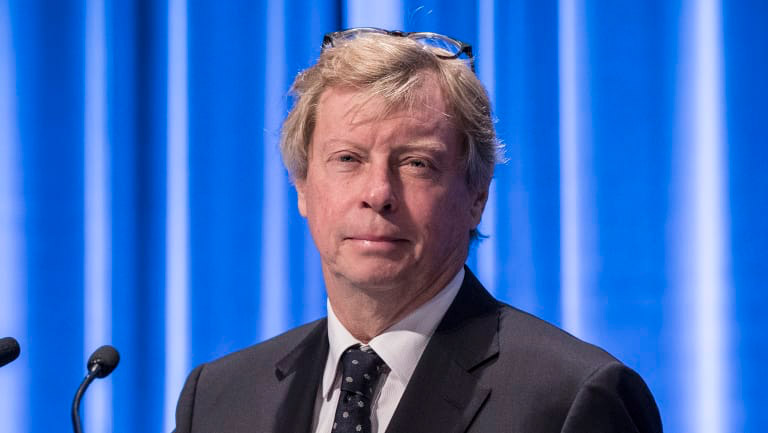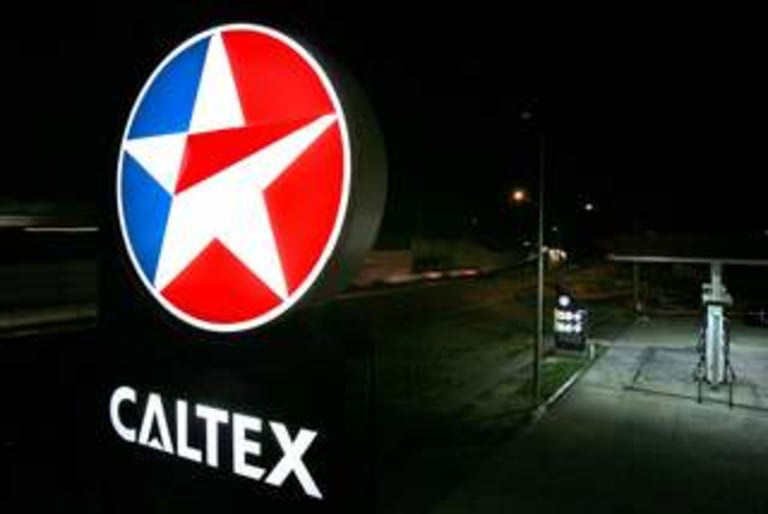Cole Latimer
10 May, 2018
The Age
Normal text size Larger text size Very large text size
Caltex is investigating other forms of energy and technology including electric car charging stations as it faces the prospect of a long-term decline in demand for petrol.
“We will look to transform to other forms of energy and other forms of business,” Caltex chairman Steven Gregg told the company’s annual general meeting on Thursday. “There is no question electric vehicles are coming, the only question is of how long they will take.”
Caltex chairman Steven Gregg said the company is preparing for an energy transition, looking at how electric vehicles will change its business.
Photo: Jessica Hromas
Caltex said there could be “no doubt” demand for petrol would fall over the long term due to increasing fuel efficiency and, eventually, the advent of mass-market electric and self-driving cars. It last year visited electric car and charging station manufacturers in America’s Silicon Valley and is in talks about the possibility of putting charging stations in service stations.
“It’s not about a quick fix, its front and centre of mind for the board,” Mr Gregg said.
However, no firm date was given for a tangible shift in the company’s strategy and infrastructure.
Morgan Stanley analysts believe electric vehicles “have the potential to completely disrupt Caltex’s business over the longer term”, however, they expect few changes in the short term.
“The pace of rollout remains uncertain, it’s no surprise to see no obvious changes to Caltex’s business model at this point in time,” Morgan Stanley analysts said.
Caltex aims to bring all franchises back under corporate control by 2020.
Photo: Sasha Woolley
The shift away from selling just petrol is part of the company’s wider convenience strategy, which has included broadening its retail reach with its Foodary stores and Nashi sandwich and coffee houses.
It comes as the government has warned that conflict in the Middle East or South China Sea could disrupt Australia’s fuel supply and threaten record-low domestic emergency stocks, saying there was just 49.6 days of net fuel supply coverage across the country.
Mr Gregg rejected the government’s claims, saying: “We’re not running out of fuel. We’ve got a more flexible supply arrangement than we have had for a number of years, it’s quite secure, rest assured the fuel supply is fine.”
Ending franchising
Earlier this year, Caltex announced that it would bring all franchised petrol stations back under corporate control by 2020, drawing a line under a franchise worker wage scandal that had hung over the company for more than a year. It is spending $120 million to bring 433 franchise stories, operated by 237 franchises, back under the company’s umbrella.
“We appreciated that this is a significant decision which will affect the lives of many of our franchisees and their families over the next two years,” Caltex chief executive Julian Segal said on Thursday.
“Some franchisees may choose to exit our network, others may stay. So far, we have agreed on transition dates with about a quarter of our network. Other franchisees have decided to continue in our network until the expiry of their tenure.”
Caltex expects these discussions to continue until the middle of the year, while it continues to investigate wage fraud claims made against former franchisees by workers.
The franchising model continues to draw fire in Australia, with wage fraud scandals at 7-Eleven, Donut King-owner Retail Food Group, and Domino’s, while a number of Oportos and Red Rooster’s franchisees are on the verge of bankruptcy.
Subscribe to our free mailing list and always be the first to receive the latest news and updates.


